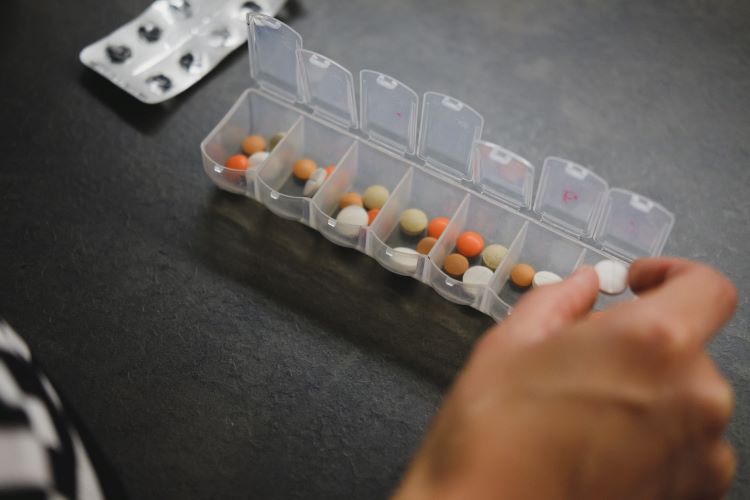Residential Alcohol Rehabilitation
Quick links for Residential Alcohol Rehabilitation
- How much does residential alcohol rehab cost?
- How long does residential alcohol rehab take?
- What are the benefits of residential alcohol rehab?
- Where can I find a residential alcohol rehab near me?
- How can I detox within a residential alcohol rehab?
- Which medications will I be offered in residential alcohol rehab?
- Which counselling options will I be offered in residential alcohol rehab?
- References for residential alcohol rehabilitation
When seeking treatment for alcohol addiction, residential alcohol rehab is an effective and safe option for those who wish to detox from this substance and benefit from a range of counselling treatments in a supportive and non-judgemental environment.
Commonly known as inpatient treatment, residential alcohol rehab is the treatment of an alcohol addiction within a rehabilitation centre, during which patients stay on-site for the duration of the programme.
It has a higher success rate than other treatment methods due to the immersive nature of these facilities, making it a viable option for those seeking help for alcohol addiction. [1]
How much does residential alcohol rehab cost?

Two people discussing the cost of residential alcohol rehabilitation
The price of residential alcohol rehab can vary according to the length of your stay, the various medications that you may be prescribed and the type of treatment that you require.
For example, a 30-day stay within a rehabilitation centre can range between £4,000 and £15,000 depending on whether the patient opts for a single or shared room and the nature of the rehab treatment centre.
We can help to narrow down the price range and provide a more accurate estimation of your treatment costs – give us a call today and start planning for your recovery journey.
How long does residential alcohol rehab take?

People discussing how long residential alcohol rehab is likely to take
While the chances of long-term recovery from alcohol addiction are increased the longer the patient remains in a treatment facility, most rehabilitation centres offer a range of potential timeframes depending on the severity of the addiction.
Common alcohol treatment timeframes include:
- 30-day programmes
- 60-day programmes
- 90-day programmes
In most cases, the treatment does not end once the patient leaves the programme.
Extended programmes are available that include sober living facilities such as halfway houses, designed to ease the transition back into daily life.
Many rehabilitation centres also offer alumni programmes, where former residents can meet and discuss their experiences of recovery.
What are the benefits of residential alcohol rehab?

Support group meeting at a residential alcohol rehab
If you are considering the idea of seeking help for your alcohol addiction, it’s important to examine the potential benefits of each treatment option.
Residential alcohol rehab is the safest and most effective method of treatment for alcohol addiction, providing a comfortable and non-judgmental environment in which to recover.
Common benefits of residential alcohol rehab include:
1. Less temptation
When undergoing outpatient care the temptation to purchase and consume alcohol during periods of intense cravings can be difficult to resist, particularly if the individual is not under constant supervision.
This is not possible within residential alcohol rehab as there is a strict alcohol ban and patients are generally not permitted to leave the premises during treatment, making it difficult to succumb to temptation and therefore reducing the chances of relapse.
2. Personalised aftercare plan
Once the treatment programme is complete and the individual has resumed daily life, the possibility of relapse is fairly high as they attempt to navigate potentially triggering situations and stress.
Before leaving residential alcohol rehab, patients will work with staff to create a personalised aftercare plan to help them avoid relapse and continue long-term recovery.
This may include attending local support groups and ongoing counselling as well as participating in the centre’s alumni programme.
3. 24/7 monitoring and support
The process of alcohol detoxification and withdrawal can be dangerous and even potentially life-threatening.
It is not recommended to undergo this process without medical supervision, and residential alcohol rehab can provide 24/7 monitoring and support.
Staff are trained to spot the warning signs of delirium tremens and will be able to take immediate action, making the withdrawal process more comfortable for the patient and potentially saving their life.
Where can I find a residential alcohol rehab near me?

Two people holding hands at a residential alcohol rehab
There are countless residential alcohol rehab centres located across the United Kingdom to suit a variety of budgets and lifestyles.
If your location does not feature on the below list, give our friendly and experienced team a call today to discuss your options – no matter where you live, we can find a local residential alcohol rehab centre that will suit your needs.
It is important to extensively research your chosen rehabilitation centre before making a commitment to ensure that they can meet your needs.
They should also be regulated by the Care Quality Commission [2] or the Care Inspectorate [3] in order to guarantee high-quality treatment.
How can I detox within a residential alcohol rehab?

Doctor typing out detox prescriptions at a residential alcohol rehab
Choosing to undergo the detoxification process within a residential alcohol rehab is the safest and most effective way to physically withdraw from alcohol, with 24/7 monitoring and round-the-clock medical care and supervision.
Under the guidance of an experienced doctor, you will be placed on a personalised plan that slowly reduces the amount and frequency of alcohol consumed each day over a period of time.
This method can reduce and prevent many of the most severe withdrawal symptoms (such as Delirium Tremens and seizures) and allows the body to rebalance and learn how to function again without the presence of alcohol in the system. [4]
A good detoxification plan will allow for a slow, steady tapering-off period depending on the severity of the addiction.
Even while following a professional detoxification plan it is likely that you will still experience withdrawal symptoms, particularly if you have been dealing with severe alcohol addiction. However, you will be carefully monitored by a team of medical experts to ensure your safety and comfort during the process.
Which medications will I be offered in residential alcohol rehab?

Patient taking medication at a residential alcohol rehab
While the process of detoxification and withdrawal from alcohol can be a difficult and sometimes dangerous one, there are a number of medications that can be prescribed in order to reduce and prevent many of the more unpleasant symptoms. [5]
Some of these medications can help to decrease the chances of relapse by making alcohol seem less appealing and even including unpleasant side effects when alcohol is consumed.
Common medications offered in residential alcohol rehab include:
1. Acamprosate
The excessive consumption of alcohol can cause physical changes to the brain and the way that the body functions.
Acamprosate can help to restore the natural chemical balance of the brain and help it to begin to function normally again, reducing cravings and helping the body to get back to a natural baseline.
2. Naltrexone
It can be a struggle to resist intense alcohol cravings during treatment, particularly during stressful and emotional times.
In these situations, Naltrexone may be administered to help reduce cravings as it can simulate the euphoric feelings that alcohol provides.
It is recommended to wait until the detoxification process is complete before taking Naltrexone, as some studies have shown this medication to make withdrawal symptoms more intense.
3. Benzodiazepines
Insomnia and anxiety are common complaints during residential alcohol rehab, particularly during the withdrawal process.
In some cases, patients will be prescribed benzodiazepines to treat these symptoms and help make the detoxification phase more comfortable and bearable.
4. Disulfiram
This medication works as a deterrent to alcohol by inducing unpleasant physical reactions when alcohol is consumed.
Individuals may feel nauseous, weak and suffer from headaches if they drink alcohol after taking Disulfiram, and this may dissuade them from relapsing in the future.
Which counselling options will I be offered in residential alcohol rehab?

Patient and therapist talking at a residential alcohol rehab
Most residential alcohol rehab centres take a holistic approach to addiction recovery, treating both the mind and body as part of the process.
While many of the physical aspects of alcohol addiction can be treated during the detoxification phase, the psychological side of treatment requires a range of counselling options depending on the nature and severity of the addiction.
Common counselling options offered in a local rehab clinic include:
- Cognitive behavioural therapy
- Dialectical behaviour therapy
- Psychotherapy
- Individual therapy
- Group therapy
- Family therapy
- Brief interventions
- Motivational interviewing
- Holistic therapies including acupuncture, mindfulness and art therapy
During therapy, you will be encouraged to share your experiences and emotions relating to your addiction and any past traumas, and with the support of your therapist, you will explore the potential reasons behind your behaviour.
You will also be provided with coping strategies and healthy ways to deal with stressful and potentially triggering situations.
Therapy can also help to increase your self-confidence and feelings of self-worth, as you learn to forgive yourself for your past regrets and move forward towards a brighter future.
Let our expert team help you find your ideal residential alcohol rehabilitation centre by giving us a call on 0800 326 5559
References for Residential Alcohol Rehabilitation
[1] https://pubmed.ncbi.nlm.nih.gov/15540492/
[3] https://www.careinspectorate.com/






